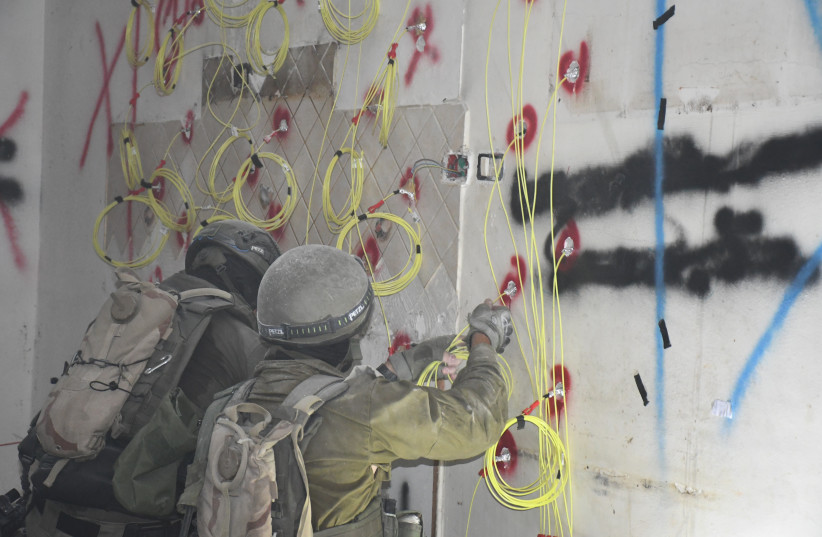The IDF and Border Police entered the village of Deir Ammar last night to demolish the home of terrorist Daud Faiz, who carried out a ramming attack at the Maccabim checkpoint on August 31. The attack killed IDF Sergeant Maxim Molchanov and wounded others. The terrorist was able to flee initially toward the Hashmonaim checkpoint, where he was killed by troops.
Molchanov, who made aliyah from Ukraine, was buried on September 5 at the military cemetery in Kiryat Shaul. A lone soldier, his funeral was attended by thousands who heard about his sacrifice. The terrorist had a work permit to enter Israel when he carried out his attack.
Deir Ammar is located on a hill in the highlands above Modi’in, near the Jewish communities of Nili and Na’ale. It is also not far from Nabi Saleh and Nilin, two areas that have been flash points for protests and conflict in the past between Palestinian protesters and Israeli security forces.
Troops arrived after midnight
Soldiers in a variety of armored vehicles drove from a base near Rantis for the operation. The Jerusalem Post was able to accompany the IDF throughout the night demolition. The IDF and Border Police troops arrived at the village after midnight and proceeded to secure the village in the early hours of Tuesday.

Palestinian residents were evacuated from areas around the home. The home itself occupied one floor in a multi-story building and was located in the center of the village. This required the evacuation of Palestinian residents to a safe distance.
Some protesters had lit some trash and wood on fire at the entrance to the village, and the sound of minor clashes could be heard in the distance. IDF engineers, specially trained for this type of mission, drilled hundreds of holes in the home to set charges. The operation was secured by the 9213 reserve battalion and Border Police.
Commander Yossi Chazot, who leads battalion 9213, discussed his experiences in the West Bank. He said this is important work and these reservists leave families behind to keep Israel secure. It’s hard work, but it helps keep the area quiet, Chazot said, comparing these missions to keeping a house clean, continually securing an area to keep terrorists from carrying out threats.
“We are active every night,” he said. The soldiers in the unit come from all walks of life. One American, who served previously after aliya, was from California and said he was on a visit to Israel and went to the reserves when the war broke out on October 7. Another man came from the Ural mountains of Russia. He wanted to be a mechanic when his mandatory IDF service ended in August. Now he has been called back to keep fighting terrorists.
The combat engineers drilled small holes throughout the house. No one was permitted inside until most of their work was done, and the smell of dust from the drilling filled the air. Soldiers with rifles, decked out in a variety of helmets and tactical vests, patrolled back and forth in the crisp night air. The goal here was to complete the work before daylight.
The home was mapped two months ago, and a plan was prepared so the foundation would not be damaged. In this case the home is small, only four rooms. The court order enabled the demolition of this specific apartment and floor, but stipulated that the rest of the building must not be damaged. Accordingly, water and gas lines were disconnected and the house vacated, leaving nothing there except bare walls, some graffiti, and one old couch.
Holes for explosives were drilled in the walls, but not in anything that would compromise the structural integrity of the entire building. In the end, when it is blown up, the walls collapse, but the structure remains largely intact.
This demolition process is one of the tools Israel uses against terrorism. The IDF stresses that this is not about revenge, but deterrence. The goal is that families will deter potential terrorists from acts of terrorism, preferring to keep their homes intact.
